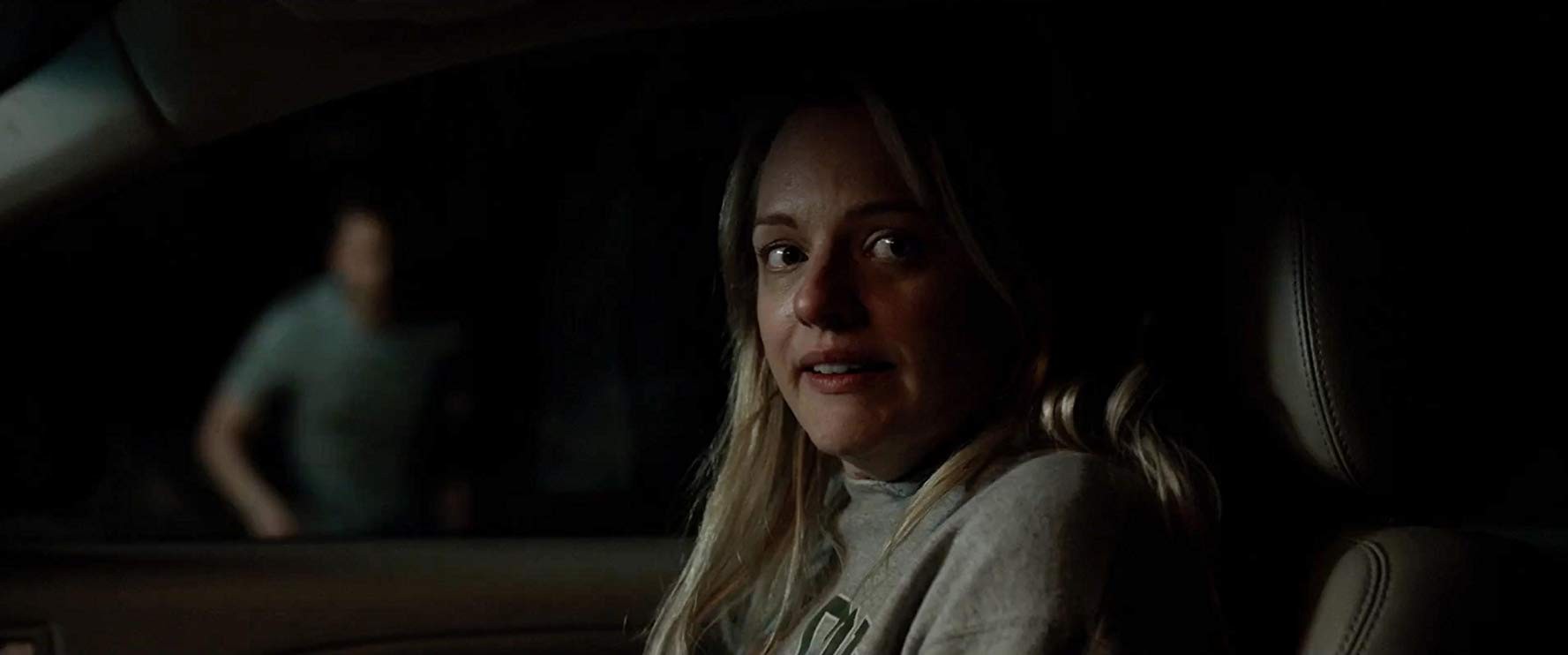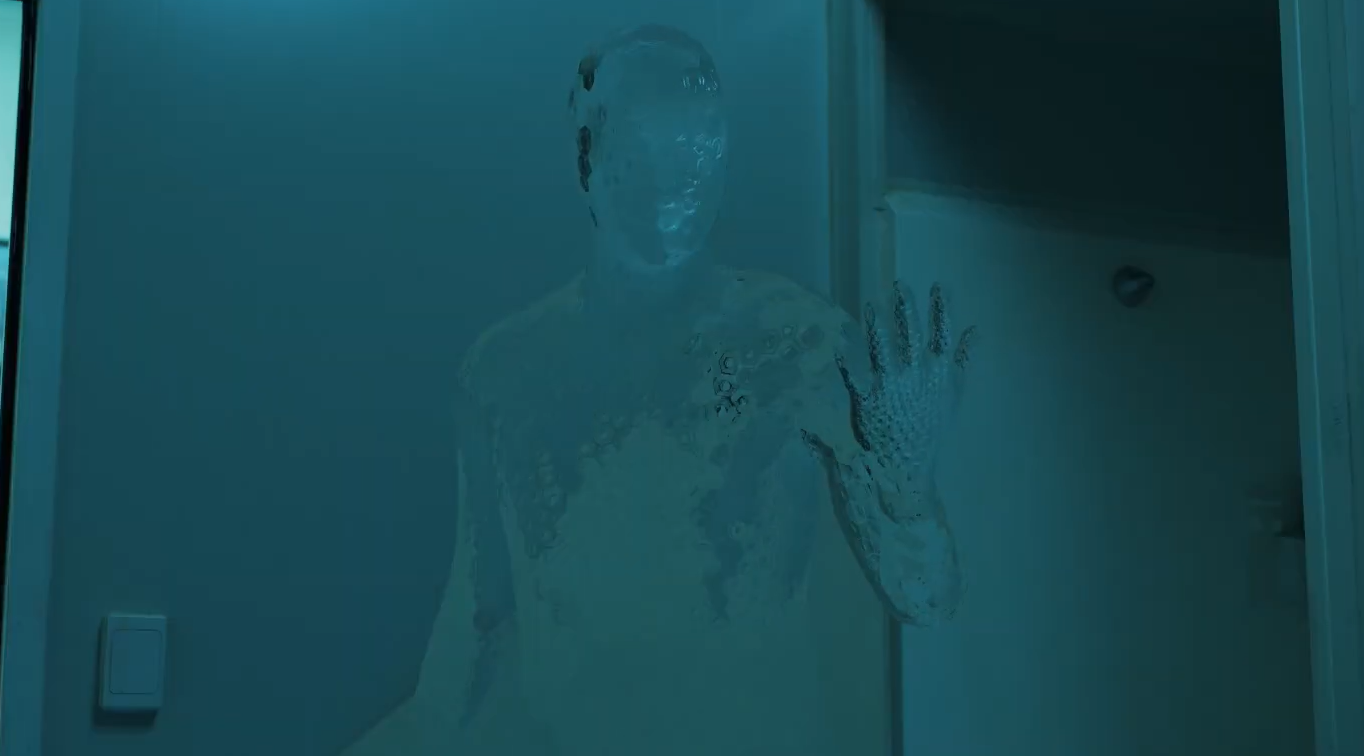
Elisabeth Moss is brilliant in The Invisible Man.
Would you rather have the power of flight or the power of invisibility? That’s a parlor game question designed to find out if you’d be a superhero or a supervillain. Why would you choose flight? The feeling of freedom, the immortal human dream of soaring with the birds, the ability to swoop in and rescue people in trouble. Why would you choose invisibility? To sneak around, engage in voyeurism, commit bank robbery, maybe try some light espionage, and just generally mess with people. Maybe the two abilities don’t flawlessly map to good and evil intent, but they’re illuminating.
Noted socialist H.G. Wells wrote The Invisible Man, his third science fiction novel, in 1897. Wells’ protagonist Griffin is a right bastard who intends to use his invisibility to conduct a “reign of terror.” The book got a fairly faithful adaptation in 1933 by the father of horror, James Whale. The high-visibility starring role made Claude Rains a movie star, and the Invisible Man one of the classic Universal Monsters. Over the years, everyone from Chevy Chase to Kevin Bacon have played some version of Wells’ transparent protagonist.
In the 21st century, Universal Studios has been obsessed with the idea of replicating Marvel’s success using its existing IP — which means, Universal Monsters. Their last attempt, 2017’s The Mummy, is one of the worst films of the last decade which reportedly lost more than $90 million. Showing rare wisdom, Universal execs decided to punt on the “Dark Universe” and go for a one-off Invisible Man movie produced by horror maestro Jason Blum.

This time around, the nowhere man Adrian Griffin is played by Oliver Jackson-Cohen. But he’s not the star of the picture. Instead, the film is led by Elizabeth Moss as Cecilia Kass, Adrian’s wife. Writer/director Leigh Whannell sets the stage for the story with a tense, cold opening. Cecilia awakens in the middle of the night in the sprawling beach house she shares with Adrian, packs a bag, and sneaks out through an intimidating array of security systems. Just when she thinks she’s escaped their abusive relationship, Adrian attacks; she and her sister Alice (Harriet Dyer) barely escape.
Cecilia goes to ground at the home of her friend James (Aldis Hodge), a police detective. She bunks with his daughter Sydney (Storm Reid), and for weeks, she is too paranoid of Adrian’s revenge to even leave the house. Then Alice comes with news: Adrian has been found dead of suicide. This doesn’t sit right with Cecilia at first. Narcissistic sociopaths like Adrian just don’t kill themselves — they’re usually more into homicide. But then Tom (a marvelously sleazy Michael Dorman), Adrian’s brother/attorney, informs her that Adrian set up a $5 million trust fund for her in the event of his death — provided she is mentally competent and doesn’t commit any crimes for four years. Cecilia tries to move on, but she can’t quite trust this kind of happy ending. That’s when stuff around her starts to move on its own.

Moss delivers a performance worthy of an artist at the height of her creative powers, playing each scene with perfect nuance. I’ll admit, I haven’t exactly been a fan of the past work of Whannell, who is one of the co-creators of the Saw horror franchise. But this time, he nails it. There’s nothing I love better than a high-concept, sci fi horror with sociopolitical resonance (yes, I’m a blast to talk to at parties), and The Invisible Man pushes all my buttons.
This isn’t a film about “what would you do if you could be invisible?” It’s about domestic abuse. Cecilia’s experience reflects all the familiar patterns of an abusive relationship. Adrian is controlling, right down to dictating what she eats and what she wears. He tells her she’s nothing, and he is the only one who understands her. He isolates her from her friends and family. Crucially, once the invisibility-related weirdness gets rolling, no one believes Cecilia’s version of events. In the context of “there’s an invisible dead man out to get me,” that’s understandable. In the real world, not believing a woman who says “my ex is stalking me and I think he’s going to kill me” all too often ends in tragedy. This version of The Invisible Man is both a terribly frightening horror film and a thought-experiment exploration of a pressing social issue worthy of grandmaster Wells himself.
The Invisible Man